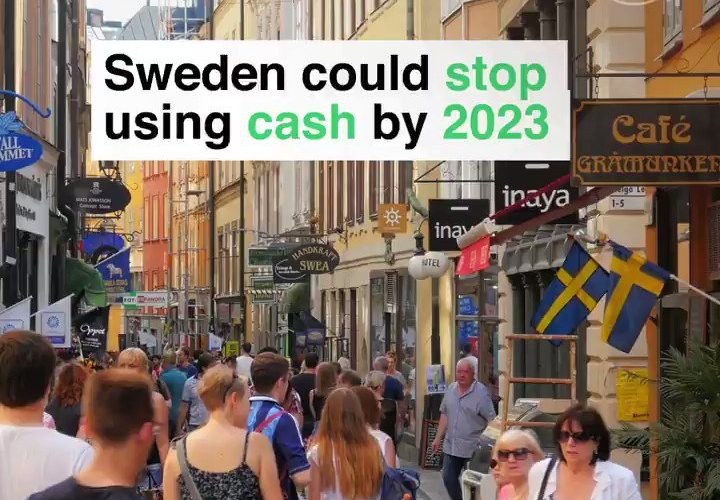
Knowledge@Wharton
Aug 31, 2018
Going Cashless: What Can We Learn from Sweden’s Experience?
Sweden is regarded as the poster child of cashless countries and is expected to become the world’s first cashless society by March 2023. This means that cash will not be a generally accepted means of payment in Sweden. This journey has been powered by various factors such as a robust card payment system, strong internet infrastructure, a popular mobile payment app, supportive legal framework and a cultural mistrust of cash.
Jonas Hedman, associate professor at the department of digitalization at the Copenhagen Business School, believes that becoming cashless is inevitable, not just for Sweden, but for other countries as well.
In a conversation with Knowledge@Wharton, Hedman talks about Sweden’s journey to becoming a cashless society, its implications for the rest of the world and lessons that can be learned. Knowledge@Wharton produced this interview in collaboration with the SWIFT Institute.
Knowledge@Wharton: You have said, together with Niklas Arvidsson (professor at the KTH Royal Institute of Technology) and Björn Segendorf (adviser and researcher at Sweden’s central bank Sveriges Riksbank), that Sweden could become the world’s first cashless society by 2023. Could you explain what this means?
Jonas Hedman: Niklas Arvidsson, Björn Segendorf and I collectively identified March 24, 2023, as when Sweden would become a cashless society. When we say “cashless society,” we refer to a society where cash is not a generally accepted means of payment. There might still be bank notes and coins left, but you won’t be able to use them in the practical sense.
We arrived at this date through our research in which we surveyed 750 Swedish retailers. We studied their cash management costs and the decline of cash in circulation in Sweden. We found that when cash transactions fall below 7% of the total payment transactions, it becomes more costly to manage cash than the marginal profit on cash sales. When this happens, an economically rational retail management should stop accepting cash.
This is possible in Sweden because even though cash is a legal tender, contract laws have a higher precedence than banking and payment laws here. If a store puts up a sign that it does not accept cash, then you, as a customer, have entered a contract or an agreement with that store that they don’t accept cash. But in other countries, like Denmark for instance, payment laws have higher precedence than contract laws. In those countries, if something is a legal tender, then according to the law a store must accept it. This is one of the key reasons why Sweden is more cashless than other countries — because of its legal framework.
YOU MAY ALSO LIKE

Hard Lessons (Thanks, Amazon) Breathe New Life Into Retail Stores
The New York Times
Sept. 3, 2018

Google and Mastercard Cut a Secret Ad Deal to Track Retail Sales
Bloomberg
August 31, 2018










